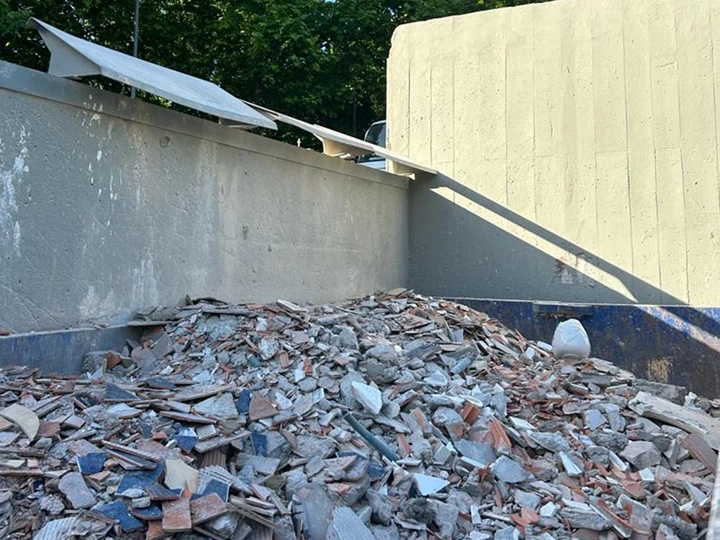Debris Archive

Mafalda Fernandes
Laura Oliveira
Diogo Rodrigues
João Paulo Rodrigues
We are a transdisciplinary collective working at the intersection of architecture, design, and sustainability, with a focus on material experimentation and urban waste regeneration. Through mostly artisanal practices, our practice investigates urban mining as a strategy, extracting from the urban environment ruins, debris, undervalued fragments, and discarded furniture to create new objects and narratives.
Our group is composed of Mayra Deberg, an architect and designer with doctoral research in the area of waste recycling and new materials applied to furniture design, whose work has been recognized internationally; Diogo Rodrigues, architect and activist, whose practice involves critical pedagogies, participatory construction, and political ecology; and Paulo Rodrigues, a self-taught maker with a strong background in post-production of pieces, responsible for processes such as sanding, surface treatment, and manual finishing.
Debris Archive is a proposal that investigates the potential of urban waste as raw material for design, architecture, and construction. We collect, catalogue, and study discarded materials such as construction debris, stone offcuts, and damaged furniture, with a focus on producing terrazzo pieces made from recycled aggregates. Terrazzo is the foundation of our experiments and can be combined with other forms of urban waste.
The archive we build supports the development of new objects and surfaces, acting as a living platform for research and creation. We explore both manual and hybrid transformation processes, seeking accessible solutions that respond to the environmental crisis and the excessive waste generated by the construction industry.
We propose a local and situated approach that values the resources available in the territory and prioritizes reuse. The project unfolds in a collaborative and open way, bridging material research, object production, and collective practices. We aim to develop public workshops and establish partnerships with other creators and communities.
We value craft and experimentation as ways to generate both technical and sensitive knowledge relevant to urban contexts. By building an archive of materials and objects from what is discarded, we seek to contribute to a culture of reuse and circularity, shifting how materials are perceived, used, and reintegrated into the spaces we inhabit.